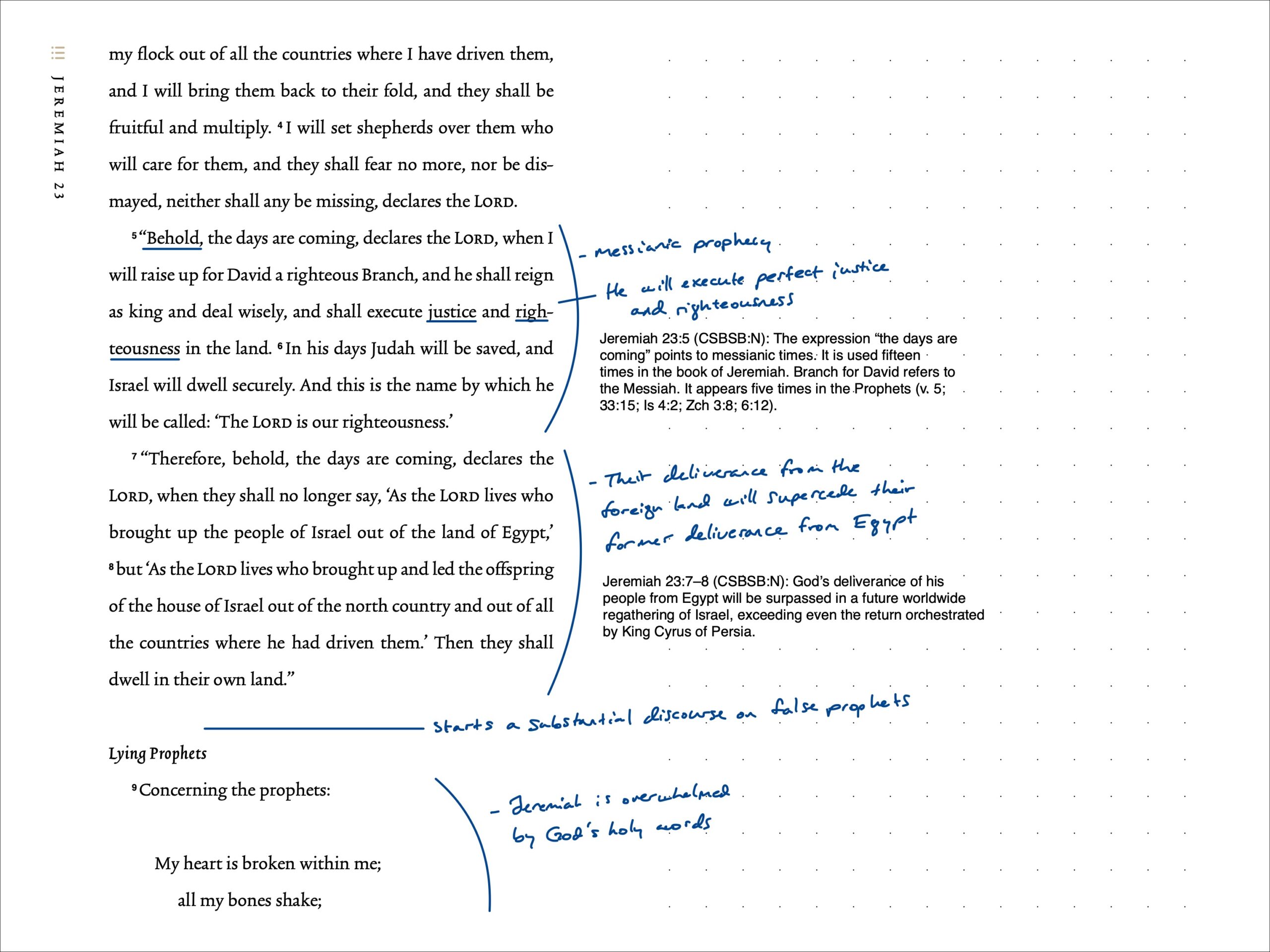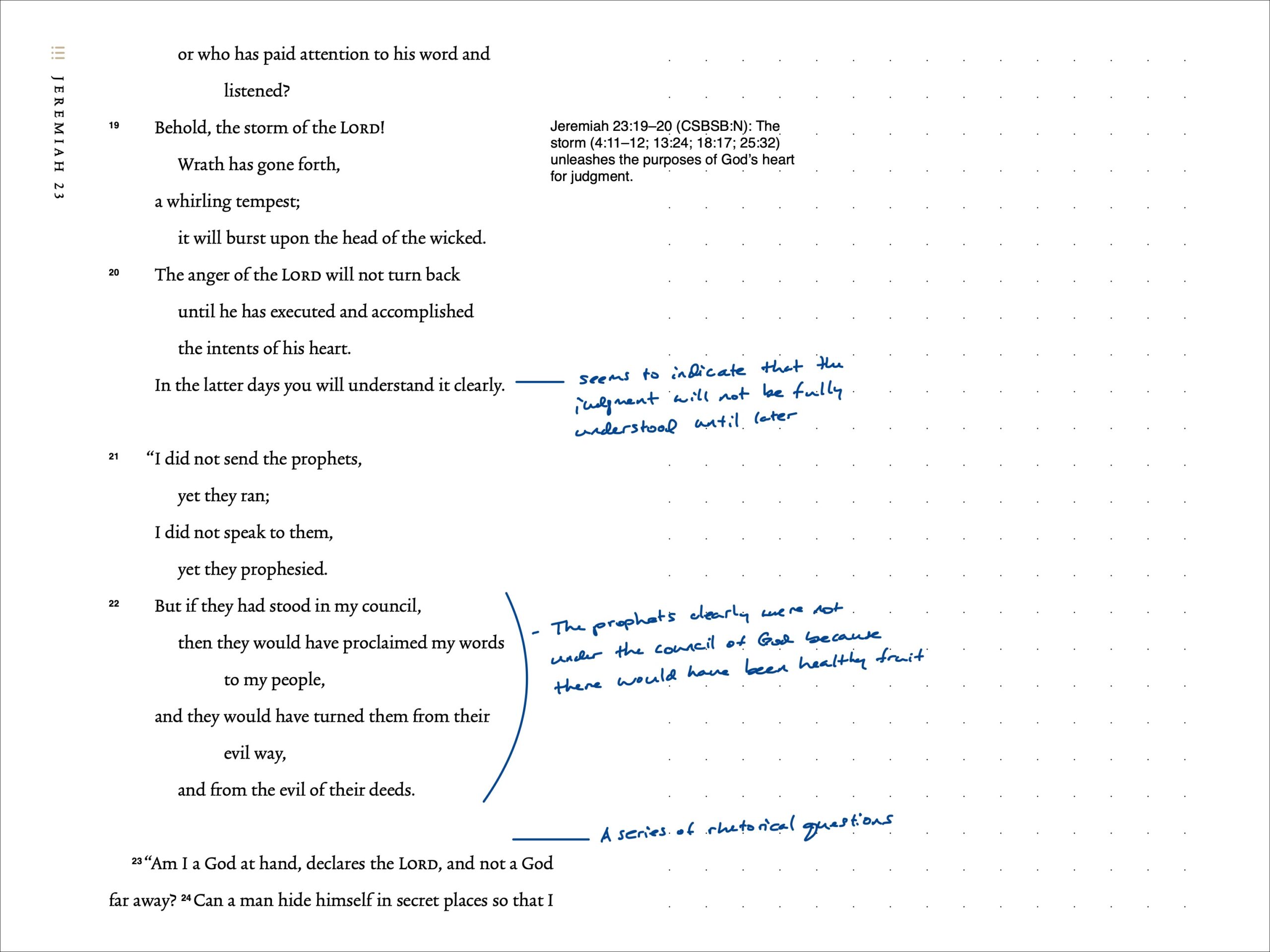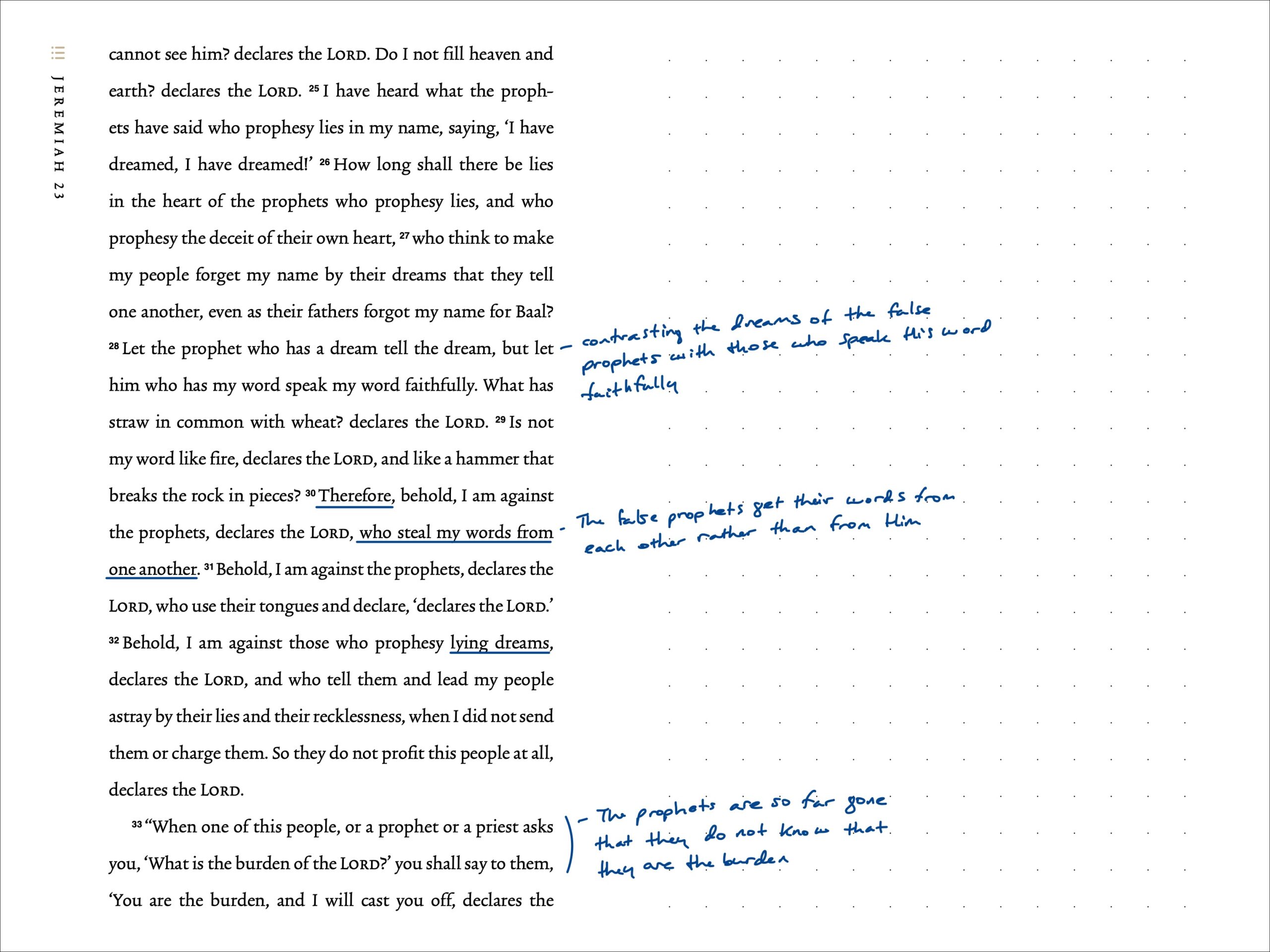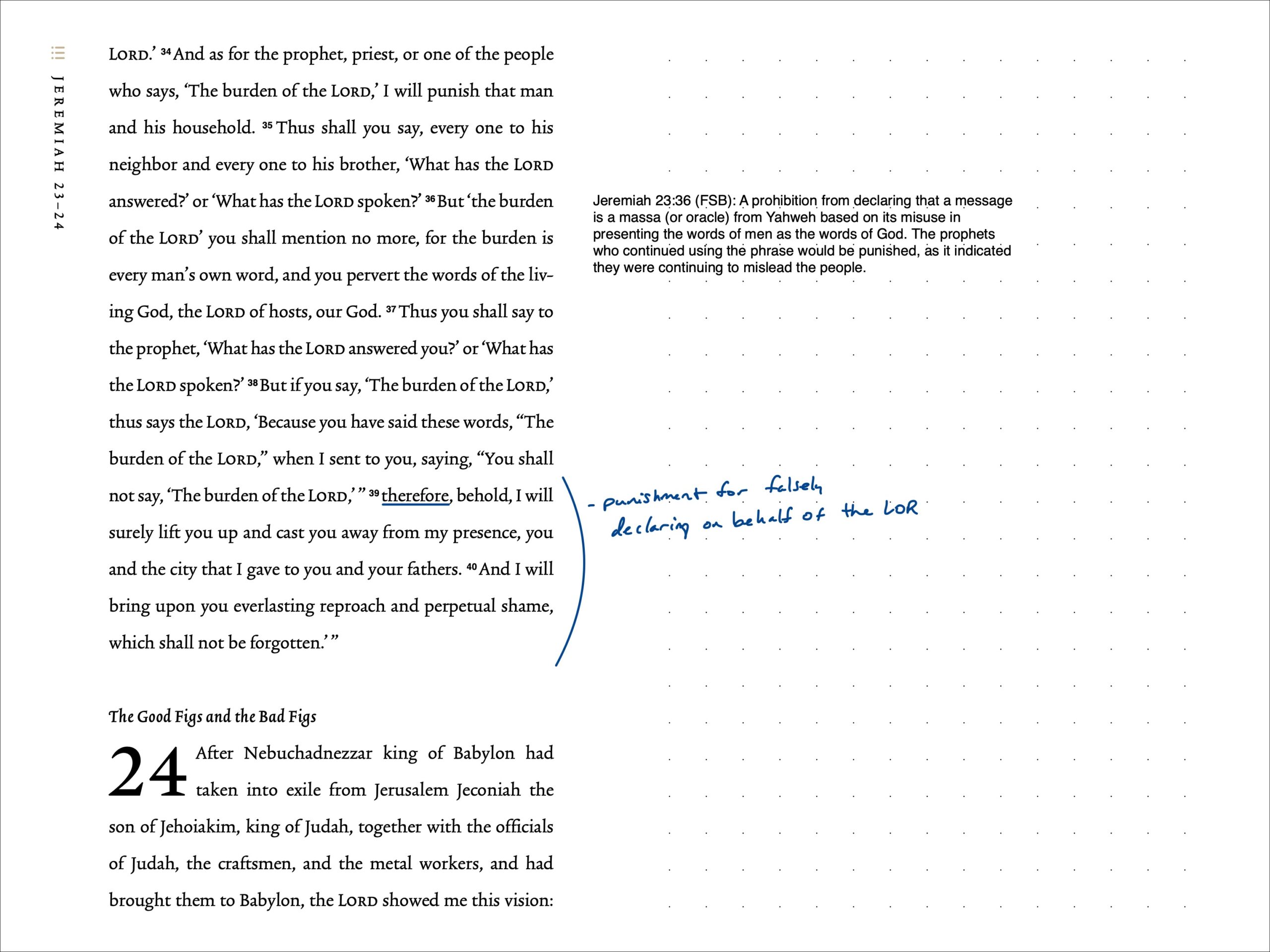| Date | Version | Reading Plan |
|---|---|---|
| @July 15, 2023 | ESV (2016) | ESV Prophets Plan 2023 |
Pericopes
- The righteous branch
- Lying prophets
Notes
The chapter opens with a declaration of woe over those who scatter His sheep, leading them away from Him. God condemns the unfaithful under-shepherds for not having properly attended their flock. There will be a judgment but a remnant will be kept, brought back into the fold and will be fruitful and multiply (Jer. 23:3).
Jer. 23:5-6 are a messianic prophecy of a righteous Branch of David that “shall reign as king and deal wisely, and shall execute justice and righteousness in the land.” (Jer. 23:5). The Branch of David refers to the Messiah and appears five times in the prophets (Jer. 23:5; Jer. 33:15; Isaiah 4:2; Zech. 3:8; Zech. 6:12).
Jer. 23:7-8 speak of the eventual deliverance of the people from the foreign land and how it will surpass their former deliverance from Egypt. It will be a future, worldwide regathering of Israel to exceed even the return orchestrated by King Cyrus of Persia.
Jer. 23:9-40 represent a substantial discourse regarding false prophets. Jeremiah begins with an expression of being overwhelmed by God’s holy words (Jer. 23:9). This leads into the accusation that the land had become “full of adulterers”, those whose “course is evil, and their might is not right.” (Jer. 23:10). Both priest and prophet are targeted, demonstrating that all civic and spiritual leadership had become corrupted.
God declared disaster and punishment over the false prophets in Jer. 23:13. The prophets of Jerusalem are contrasted against the prophets of Samaria who prophesied to Baal, the Canaanite storm god. The false prophecy of Samaria is described as “unsavory” in the ESV (CSB: ”disgusting”, NLT: “terribly evil”, NIV: “repulsive”) and “horrible” for Jerusalem (NLT: “even worse”).
The remainder of the chapter (Jer. 16:40) are of God, through Jeremiah, instructing the people not to listen to the false prophets who are not speaking on His behalf. The false prophets were filling them with vain hopes of peace (Jer. 23:16) rather than the hard truth of impending destruction. These prophets had dreams but they were not of Him but rather words repeated among each other of the same false message of hope.
Application
The contrast of the prophets of Samaria with Jerusalem in Jer. 23:13-15 illustrates something important. While the idolatry of the Samaritans is compared to Jerusalem, God focuses His punitive attention on Jerusalem, not Samaria. The is because the remnant of God’s people was to come through the nation of Judah, not Israel.
Again, this rings of God as loving Father caring for His children. When a child becomes involved in foolish behavior with wayward friends, the hammer of the parent does not come down on the friends, but on the child. It is the child they love and thus the child they seek to correct. This is the very essence of Fatherly love; that He would enact discipline in order to rectify behavior and draw His children to Himself. What grace our Lord shines upon us, that He would care so deeply and tend to us in this way.
Scripture Journal Notes
Commentaries & Resources Used
- ESV Study Bible. (Wheaton, IL: Crossway, 2008)
- Faithlife Study Bible (Lexham Press, 2016)
- Believer’s Bible Commentary (Thomas Nelson, 2016)
- CSB Study Bible Notes (Holman Bible Publishers, 2017)
- Matthew Henry’s Commentary on the Whole Bible (Guardian Press, 1976)
- The Bible: A Reader’s Guide (Sterling Publishing, 2011)
- The Infographic Bible (Zondervan, 2018)
- ESV Digital Scripture Journal (Crossway, 2019)






